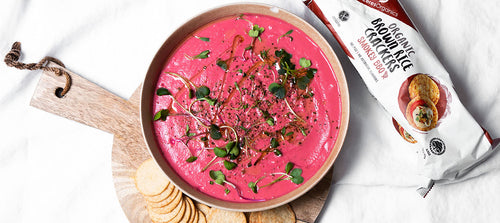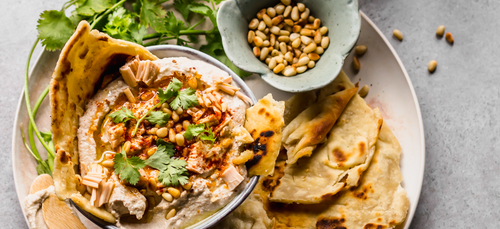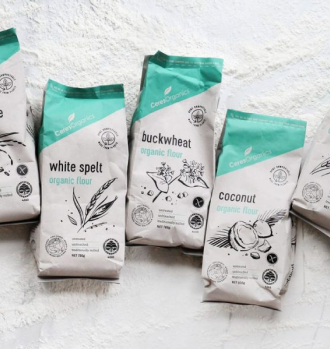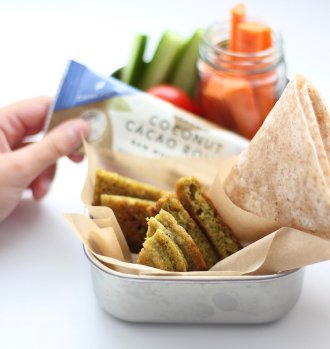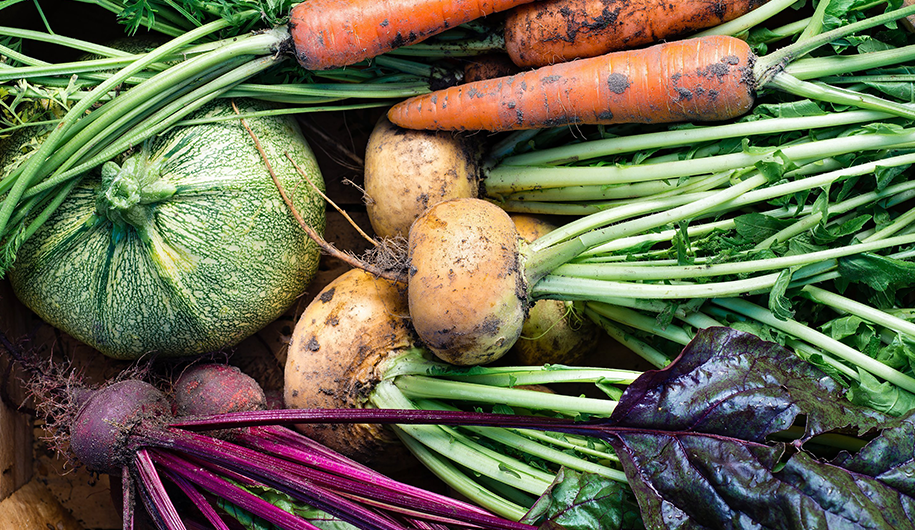
There always seems to be a debate around organics and whether it is sustainable. Our society is becoming increasingly more conscious of the food we chose to eat, we are being led by our values and making choices based on educated decisions that align with our beliefs. This is not just in the way food can impact our health, but the way in which it impacts the environment, our community, and economically / financially.
What did the Food And Agriculture Organisation of the United Nations report on our soil health?
The Food and Agriculture Organisation of the United Nations reports that a third of the world’s soil has been degraded due to heavy farming techniques and deforestation, really embedding the idea that farming and food production systems need to be re-thought. This is an alarming figure, and it’s important to pay attention that this will eventually affect our current way of living – this is not sustainable.
Sustainability has become an area of focus and a hot word in the food industry. The purchasers of food and products are increasingly starting to use their voices, and vote with their money. There is an increasing focus to ensure we no longer degrade the environment, but contribute to leaving the earth in a better state than we found it.
What a lot of people don’t realise is that organic practices is aligned with sustainability; and we mean this not just in terms of land environment but in terms of people, communities, economies, wider natural resources. So farming in a way that promotes sustainability, in its widest sense, is at the core of organic food production.
How is organic farming sustainable?
Sustainable farming focuses on the way in which food is produced, in a way that does not degrade the environment. It encourages to explore ways that we can regenerate the environment to reverse damage the land has been exposed to. Market signals are showing a much more aware and proactive society that want to take care of the earth, and sustainability is top of mind. Organic farming is very much aligned with the theory behind organic farming, creating sustainable systems to create food and care for our people.
Organic food is grown the way nature intended – without the use of synthetic and chemical additives. Conventional farming utilizes chemical intervention, as a way to fight off pests and weeds. These forms of farming are not sustainable, in that they are not healthy for the land or people and can have detrimental long term effects. Organic farmers have innovative techniques, such as composting, using natural resources as fertilizers and crop rotations, therefore also making it more economically sustainable.
Organic farming is also beneficial for biodiversity and wildlife. The use of chemical intervention has promoted the dying off of a vast number of insects – including helpful pollinators such as bees. Organic agriculture results in greater biodiversity of plants, animals, insects and microbes. A rich mix of microorganisms, plants, and animals on the farm creates healthy soil, strong crops, and resilient natural systems that don’t require chemical intervention to manage pests and diseases.
So, when we talk about the sustainability of the earth the way we contribute is;
-
Discouraging the environmental exposure to pesticides and chemicals.
-
Regenerating and build healthy soils through natural cultivation
-
We encourage biodiversity – having a more diverse farm means a more stable farm.
-
Supporting water health – we ensure there is no polluted runoff flowing into waterways.
Here at Ceres Organics, we have a commitment in supporting the organic industry. One way is to support the farmers and introducing organic products to customers like you. This increases awareness of the organics industry and highlights the dangers of using chemical pesticides/herbicides. Other ways we help are buying crops in advance for farmers to make sure they are financially viable – it can be costly for organic farming as heavy labour is involved to manage crops rather than using chemicals/GMOS etc. to aid in pest control.
As you can see, Organics isn’t just about food made with no GMOS and chemicals – it’s more than that. It’s part of a sustainable ecosystem that we encourage more farmers to get into and hopefully more customers like you, will vote with your wallet to support organics.
References:
https://crimsonpublishers.com/cojrr/fulltext/COJRR.000503.phphttps://www.naturespath.com/en-us/blog/organic-food-sustainable/
https://www.scientificamerican.com/article/only-60-years-of-farming-left-if-soil-degradation-continues/
https://www.theguardian.com/sustainable-business/2016/aug/14/organic-farming-agriculture-world-hunger

